
The Sea Cadet Corps is a national youth charity. It is present in England, Scotland, Wales, Northern Ireland, Malta and Bermuda. Cadets follow an ethos, training plan and rank structure similar to that of the Royal Navy, and are recognised by the UK Ministry of Defence.
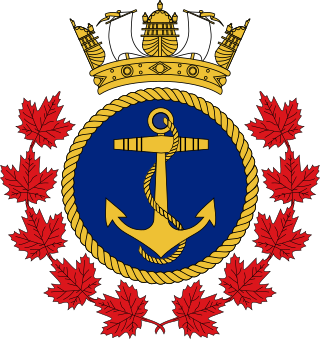
The Royal Canadian Sea Cadets is a Canadian national youth program sponsored by the Canadian Armed Forces and the civilian Navy League of Canada. Administered by the Canadian Forces, the program is funded through the Department of National Defence, with the civilian partner providing support in the local community. Cadets are not members of the Canadian Armed Forces.
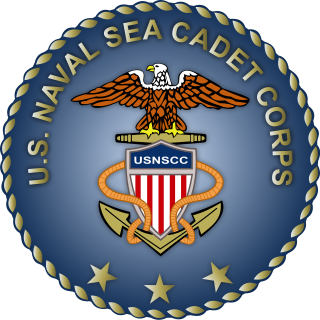
The United States Naval Sea Cadet Corps is a congressionally chartered, U.S. Navy-sponsored organization that serves to involve individuals in the sea-going military services, U.S. naval operations and training, community service, citizenship, and teach an understanding of discipline and teamwork. The USNSCC is composed of two programs; the Navy League Cadet Corps (NLCC), which is for cadets ages 10-13, 5th grade through 8th grade; and the senior program (NSCC), which is for cadets ages 13-18.
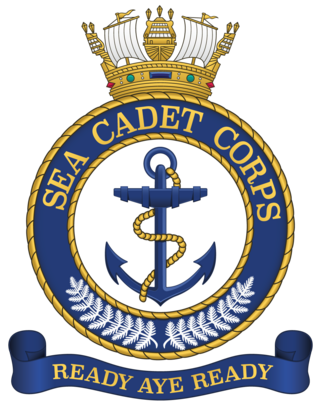
The NewZealandSea Cadet Corps is one of the three corps in the New Zealand Cadet Forces, the other two being the Air Training Corps, and New Zealand Cadet Corps. It is a military-style training organisation for young people between the ages of 13 and 21. Activities include sailing, and boat work, ropework shooting and drill, amongst other activities, many of which involving the other branches of the NZCF. Cadets need to pass an annual swimming test to undertake water-based activities.

The Navy League of Canada is a nonprofit organization founded in 1895 and incorporated in 1918. Originally formed to promote maritime issues to Canadians, the Navy League is the non-governmental partner of the Department of National Defence and supports the Royal Canadian Sea Cadets program. The Navy League also independently delivers the Navy League Cadet program for boys and girls between the ages of nine and twelve.

The International Air Cadet Exchange is an annual student exchange program designed to promote character, good-will, and cooperation among the world's civilian auxiliary aviation programs. Participants come from organizations such as the Air Training Corps, Girls Venture Corps Air Cadets, Civil Air Patrol, German Society for Aeronautics and Astronautics, Royal Canadian Air Cadets, Turkish Aeronautical Association, Hong Kong Air Cadet Corps, Singapore National Cadet Corps, along with equivalent groups in other nations. Cadets spend approximately two weeks every July/August with their foreign counterparts. The first exchange occurred in 1947, between the United Kingdom and Canada.
The Navy League Cadet Corps was created by the Navy League of Canada for boys in 1948, and the Navy League Wrennette Corps was formed for girls in 1950. The Wrennette program no longer exists, since the Navy League Cadet Corps are now open to boys and girls between the ages of 9 and 12.
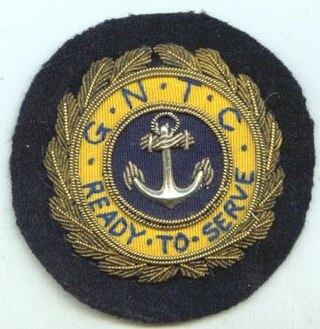
The Girls' Naval Training Corps was formed as part of the National Association of Training Corps for Girls in 1942, with units mainly in Southern England. Its objective was congruent with that of the Sea Cadet Corps, teaching girls aged 14 to 20 the same seamanship skills as the SCC taught the boys, in preparation for service with the Women's Royal Naval Service.
The Sea Cadet Association of New Zealand traces its roots back to 1929 when the first open Sea Cadet unit was formed in Christchurch, by the Canterbury Navy League. Units formed in the four main centres and were controlled nationally by the Canterbury branch of the League. The Navy League continued to manage these open community Sea Cadet units even when they came under the control of the Royal New Zealand Navy (RNZN).
The Navy League Wrennette Corps was formed by the Navy League of Canada in 1950 as a cadet organisation for girls to complement the Navy League Cadet Corps of Canada.
Sea cadets are members of a cadets youth program sponsored by a national naval service, aimed for young people with an interest in waterborne activities and or the national navy. The organisation may be sponsored in whole or in part by the navy or a naval supporter's organisation.
The Royal Belgian Sea Cadet Corps is a Belgian non-profit youth organisation whose purpose is to stimulate teamwork and discipline in individuals from the age of 12, while teaching other important skills and values such as first aid, navigation and linguistic skills, operating a vessel, military drill and much more. The organization receives support from the Belgian Ministry of Defense.
The Navy League of Australia is an Australian organisation and advocacy group dedicated to creating interest in maritime and naval matters, particularly those relating to the Royal Australian Navy (RAN) and the Australian Merchant Navy.
The Canadian Cadet Organizations, marketed under the name of Cadets Canada, are a youth program known as the Royal Canadian Sea Cadets, Royal Canadian Army Cadets, and Royal Canadian Air Cadets. The program is sponsored by and funded through support from the civilian Navy League, the Army Cadet League and the Air Cadet League, as well as local community sponsors that include service organizations and parent sponsoring groups supervised by the Leagues.
Navy League of New Zealand is a maritime organisation established in 1896 in New Zealand.
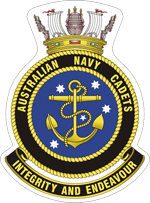
The Australian Navy Cadets (ANC) is a leading national youth development organisation, with the character and values of the Australian Navy, founded on a strong community partnership, fostering and supporting an ongoing interest in the Australian Navy.

Connaught Cadet Training Centre is a training centre for Royal Canadian Army Cadets, Royal Canadian Air Cadets, and Royal Canadian Sea Cadets since 1989. It is located at the Connaught Range and Primary Training Centre (CRPTC), in Ottawa, Ontario, and trains approximately 500 cadets each summer in 3, 4, 6, and 9 week courses. Administered by the Canadian Forces, the program is funded through the Department of National Defence.
There are many national organisations in the United Kingdom that have been established to provide services to people under the age of 18.

The National Association of Naval Volunteer Corps, commonly known as the Swedish Auxiliary Naval Corps is a Swedish auxiliary defence organization that cooperate with the Swedish Armed Forces.










